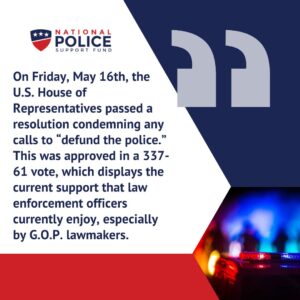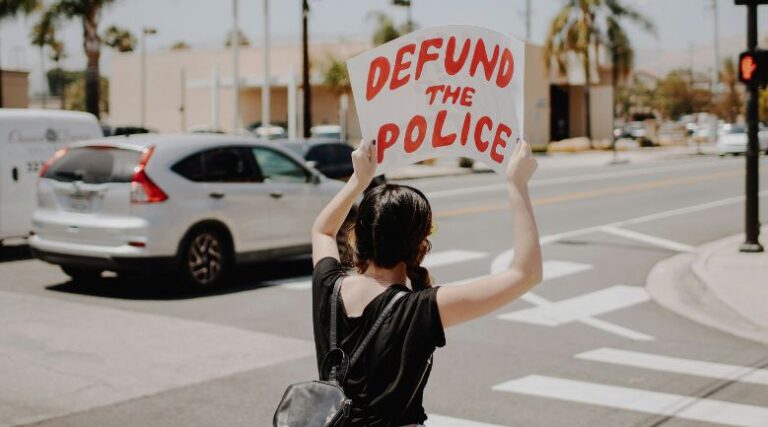On May 16, 2024, the U.S. House of Representatives passed a resolution condemning any calls to “defund the police.” This was approved in a 337-61 vote, which displays law enforcement’s current support, especially by G.O.P. lawmakers.
While the final result was not strictly partisan, all votes against it came from Democrats, particularly those of the Congressional Progressive Caucus. This faction vows to continue its work to push the Black Lives Matter agenda – although they can expect heavy resistance by conservative and centrist politicians.
What is this Defund the Police Resolution All About?
The Defund the Police Resolution was part of a non-binding declaration that can be read as an unequivocal statement of support on behalf of the G.O.P. Across its four pages, the document stresses:

- The toxic effect of “defunding” policies, which have “increased violence towards law enforcement officers”
- Expresses condolences to the families of police officers who were killed in the line of duty
- States an intent to reach out to officers who have been injured to compensate them better
- Denounced the ongoing attempts to handicap police departments across the country.
The resolution was not proposed or passed in a vacuum. It is a guiding document within a larger bill package to support law enforcement initiatives. The House G.O.P. leadership framed these bills as “Police Week” in the hope that this established commemoration would serve to listen to law enforcement officers and prioritize safety.
What Else Has Congress Been Working On?
Lost among the pre-election political noise, some representatives continue defending law enforcement’s interests. Over the past two months, allies of law enforcement on the Republican side have also presented the following moves:
- A bill to toughen consequences for illegal immigrants who assault police officers.
- An initiative to change youth offender status in D.C. only to those who are truly minors.
- The Improving Law Enforcement Officer Safety and Wellness Through Data Act (S.3522) would improve the support of injured police officers.
- A plaque commemorating the police officers who defended the Capitol on January 6th.
Regardless, it is very telling that only one passed, S.3522, the data collection exercise. The more “hands-on” bills requesting reform, be it for illegal immigrants or youth offenders, found heavy opposition from politicians on both sides.
What’s Next for Police?
We are nearing the end of the term; there is still time to see real changes.
With just a few weeks before the national election, the onus is back on us. We need to take note of which representatives have policemen’s backs, which ones support us, and which ones fail to show up for us when it’s time to vote to support law enforcement.
Legislators still have the time to protect police officers where it matters: by ensuring they have the funds and powers needed to keep our communities safe and orderly.








